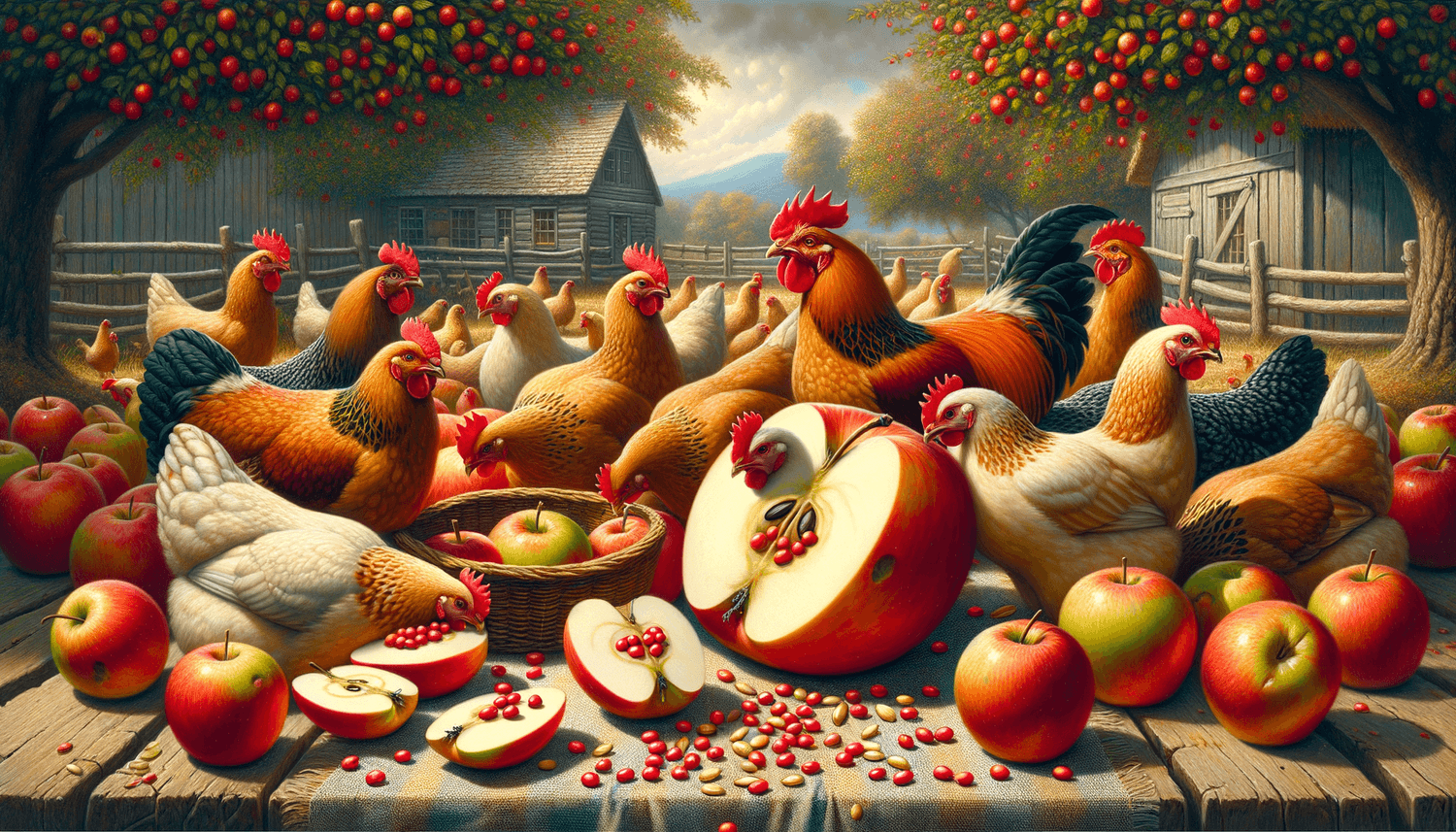Maybe, chickens can eat apple seeds, but it is not recommended. Apple seeds contain amygdalin, which can release cyanide when metabolized. While a small quantity of apple seeds is unlikely to cause harm, consuming large amounts can pose a risk to chicken health.
Quick Summary
- Chickens can eat apple seeds but it’s best to avoid them.
- Apple seeds contain amygdalin, which can be toxic in large quantities due to cyanide production.
- The key risk is cyanide poisoning, though this is rare and would require a large consumption of apple seeds.
- If offering apples to chickens, it’s safer to remove the seeds first.
Overview of Apple Seeds
Apple seeds come from the core of apples and are small and hard. While apples themselves are nutritious for chickens, providing vitamins, fiber, and hydration, the seeds contain amygdalin, a compound that converts into cyanide in the digestive system. However, in small quantities, they are unlikely to cause issues due to the body’s ability to detoxify small amounts of cyanide.
Benefits and Risks of Apple Seeds for Chickens
Apples, excluding the seeds, can be a healthy treat for chickens, offering hydration and nutrition. However, the main risk associated with apple seeds for chickens is the presence of amygdalin. If chickens consume a large number of apple seeds, it could potentially lead to cyanide poisoning, which is highly toxic and can be fatal. Therefore, moderation and caution are critical when considering feeding apple seeds to chickens.
Feeding Guidelines
When feeding apples to chickens, it is safest to core the apples and remove the seeds. The occasional apple seed is unlikely to harm your chickens, but as a precaution, it is best to avoid allowing them access to large quantities of seeds. As a general rule, feeding chickens apple flesh without the seeds is the better practice.
Alternatives
If you are looking for a safe and healthy alternative to apple seeds, consider offering your chickens the flesh of the apple, making sure it is seed-free. Other safe fruits for chickens include melons, berries, and bananas—always in moderation and alongside their regular, balanced diet.
Expert Opinions
Poultry nutritionists generally advise against feeding chickens apple seeds due to the potential risk of cyanide poisoning. While the occasional seed is not a significant danger, consensus is to err on the side of caution and remove seeds when feeding apples to chickens. Reference guidelines from the Extension Office of your local agricultural college or consult with a veterinarian for specific advice tailored to your flock.
Frequently Asked Questions
Readers commonly have several questions after learning about the risks and benefits of feeding apple seeds to chickens. Here are the answers to some of those questions:
How many apple seeds can harm a chicken?
It takes a relatively large quantity of apple seeds to cause harm due to the low concentration of amygdalin. However, exact amounts can vary, and it is always safest to prevent access to apple seeds altogether.
Are there any symptoms of cyanide poisoning in chickens that I should watch for?
Symptoms can include difficulty breathing, bright red comb/wattles, convulsions, and paralysis. If you suspect cyanide poisoning, seek veterinary assistance immediately.
How often can chickens eat apple flesh without seeds?
Apple flesh is safe for chickens and can be fed in moderation as a treat. Make sure it doesn’t constitute more than 10% of their diet to maintain nutritional balance.

















